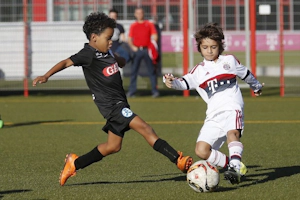The evolution of the goalkeeper in football

The role of goalkeeper has always been a main role in football, and starting from the youth age groups, goalkeepers have a specific methodology for training and all clubs and even football academies place a high value on finding the strong goalkeeper or developing a skilled players of the last line of defense. In contrast to other roles, goalkeepers have a specific role and a small mistake they make is visible to everyone.
Today, the role of a guardian has changed a lot compared to the past. It used to be that all goalkeepers, from youth teams to the first team, trained only to improve, to parry the ball and to stop the opponent from scoring. But in recent years this has changed and goalkeepers are training more and more to develop their passing skills.
Goalkeepers have become better with their feet in recent years. And we can see that goalkeeper training has changed greatly from an early age. Goalkeepers become more concerned with how to distribute the ball correctly, find open teammates, and launch their team's attack.
The coaches' philosophy has also changed in the past few years. In earlier times, many of them did not think of the goalkeeper as a player who needed to pass well and have excellent ball control in order to start the attacking phase. Actually, an increasing number of coaches believe that the goalkeeper is the first player who can launch the attacking phase of the game and that he needs to possess excellent ball control and a high degree of technical ability.
Photo from the official website of FC Bayern
Some examples of new modern goalkeepers include Manuel Neuer, Ederson, Onana, and others. To summarize, these changes have resulted in both positive and negative outcomes. The negative aspect is that catchers, as such, don't now focus as much on improving parrying, catching the ball, and other skills as they once did. We'll have to wait and see how things progress in the future, as well as how goalkeeper training changes from year to year.
Find Football tournament













